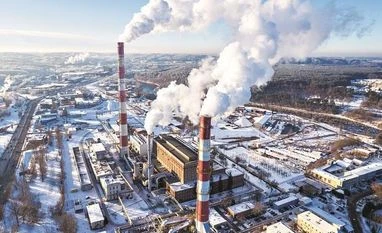The global market for carbon credits is expected to witness an upward trend and touch the level of USD 250 billion by 2030, an industry executive said.
The market for carbon credits took a hit due to multiple reasons, including Russia-Ukraine war, interest rate hikes, and reduced demand leading to falling prices up to 80 per cent, Manish Dabkara, Chairman and Managing Director (CMD) of EKI Energy Services, said in an interview.
"The market for voluntary carbon offsets which valued at around USD 2 billion in 2021 witnessed a downturn, and now valuing at USD 500 million. However, various ratings and research firms are bullish on the improvement in the carbon market," Dabkara said.
Citing a Barclays report, the industry executive said, factors like stringent climate policies by various countries, their commitments under Paris agreement to reduce carbon emissions, and corporate sustainability goals are likely to contribute to the growth of the carbon credits market which is expected to reach the level of USD 250 billion by 2030.
The insight from the industry comes at a time when India is in the process of developing a carbon credit market. India's initiative is poised to accelerate the country's transition to become a low-carbon economy.
The government is taking measures to make India a market for carbon credit, which will be utilised to meet the country's NDC (nationally determined contributions) goals, Union Minister for New and Renewable Energy R K Singh had earlier said.
"What we are going to put in place is a system of the carbon market. We already have some sort of carbon market here because when we have a renewable energy certificate that's carbon credit. Then we have energy-saving certificates that are carbon credits. Now we are going to combine that into one carbon credit and it will be sold," he had said.
Also Read
Madhya Pradesh-based EKI Energy Services is a leading carbon credit developer and supplier across the globe.
Carbon credit, also known as carbon offsets, is a market-based mechanism designed to incentivise and facilitate the reduction of greenhouse gas (GHG) emissions.
It is a key component of emissions trading system, which helps mitigate climate change by allowing organisations, governments and individuals to offset their emissions and earn carbon credit by investing in projects that reduce or remove an equivalent amount of emissions elsewhere.
(Only the headline and picture of this report may have been reworked by the Business Standard staff; the rest of the content is auto-generated from a syndicated feed.)
)